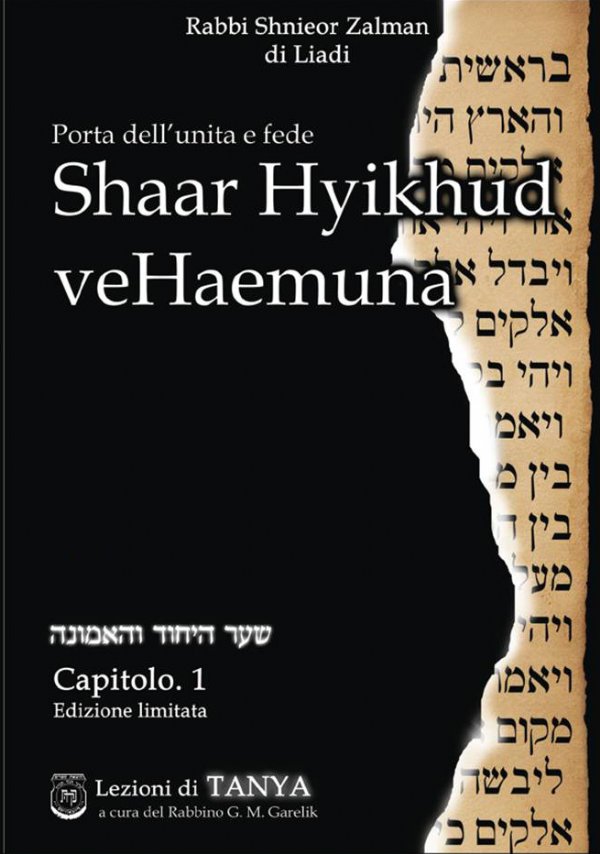|
It was Amir Halevi’s dream to study industrial design, and for this purpose he traveled from Israel, his home country, to Milano, Italy. However, to his disappointment, when he arrived in Milano he learned that his visa would not allow him to enroll in a course of study. There was no reason for him to stay in Italy.
Nevertheless, Amir decided to stay and try his luck in Milan. He figured that he’d find a way to make it work. And indeed things did work out for him, albeit not in the way he had anticipated…
With a backpack on his back and 500 euros in his pocket, Amir set out on the journey that would transform his life. He found work as a cook for the local synagogue, and thus he was exposed to Judaism. This was in 2004. Amir found himself participating regularly in the prayers and study sessions in the “Beit Hatalmud” congregation, led by Rabbi Tzemach Mizrachi, one of the Rebbe’s emissaries in Italy.
Amir was particularly drawn to the study of Tanya, the fundamental work of Chabad Chassidism. He spent many hours reading the Tanya and was captivated by the way of life set out in the volume. With time, Amir accepted upon himself many practical mitzvot and felt himself an integral part of the community.
After a year in Italy, Amir learned that his grandfather, who had raised him like a father, was very ill with liver disease. The family let Amir know that the doctors did not expect his grandfather to live much longer.
Amir hastened to return to Israel to be at his grandfather’s side. Day after day he sat at his bedside and even lay tefillin with him, to his grandfather’s great joy. Amir’s plan was to return to Italy after three weeks. He wanted to take entrance examinations to enroll in university in Milan for the upcoming year, hoping that by then he’d obtain the necessary student visa. However, when three weeks were up he found that it was difficult to leave his grandfather in that condition.
On the advice of a friend of his, a Chabad Chassid, Amir decided to turn to the Lubavitcher Rebbe for a solution to his dilemma. How, you may ask? Chassidim have developed a custom, based on an ancient tradition, to write one’s question and insert it at random into one of the volumes of Igrot Kodesh, the Rebbe’s published letters. The answer published on that page often bears an uncanny relationship to the original question.
After writing his question, Amir inserted it into volume 25 of the Rebbe’s letters. He opened to letter #9434, and found a letter that spoke specifically about the publication of a translation of Tanya into Italian. Another letter on the same page spoke about the greatness of the mitzvah of tefillin.
On the one hand, Amir understood that the Rebbe was encouraging him to return to Italy, but not to study in university. In the past, Amir had discussed the matter of publishing a translation of Tanya in Italian, during a time that he worked briefly in a printing house. On the other hand, the Rebbe also alluded to the greatness of tefillin, and Amir was putting on tefillin with his grandfather every day.
Amir decided that he would find someone to come daily and put on tefillin with his grandfather, while he would return to Italy and work on a translation of Tanya.
The truth is that a translation of Tanya into Italian had already been published 40 years earlier. Amir’s plan was to translate the book “Lessons in Tanya,” a series of explanations on Tanya which made the deep concepts expressed in Tanya accessible to the modern reader.
After two-and-a-half years of work, Amir and a group of associates completed six chapters from the Igeret Hateshuvah section of Tanya. Amir now sought out someone to review the book and ensure that it was correct both conceptually as well as grammatically.
Amir got in touch with the chief Chabad rabbi of Milan, Rabbi Gershon Mendel Garelick, and told him of the directive he had received from the Rebbe via Igrot Kodesh and what he had accomplished thus far.
Rabbi Garelick became very excited. He told Amir that a while back, an Italian family had received a directive from the Rebbe to translate Igeret Hateshuvah into Italian. “Imagine this – today is the yahrtzeit of one of their family members, an just today you call to tell me that you have translated Igeret Hateshuvah into Italian!”
Rabbi Garelick took upon himself the full responsibility to arrange and sponsor the translation, while Amir continued to work intensively on translating the rest of the volume. Several months later, Amir completed his project. The book was published by the official Chabad publishing house, and soon the entire edition was sold out.
“I merited to have the Rebbe guide my life in the most successful manner,” says Amir.
|

